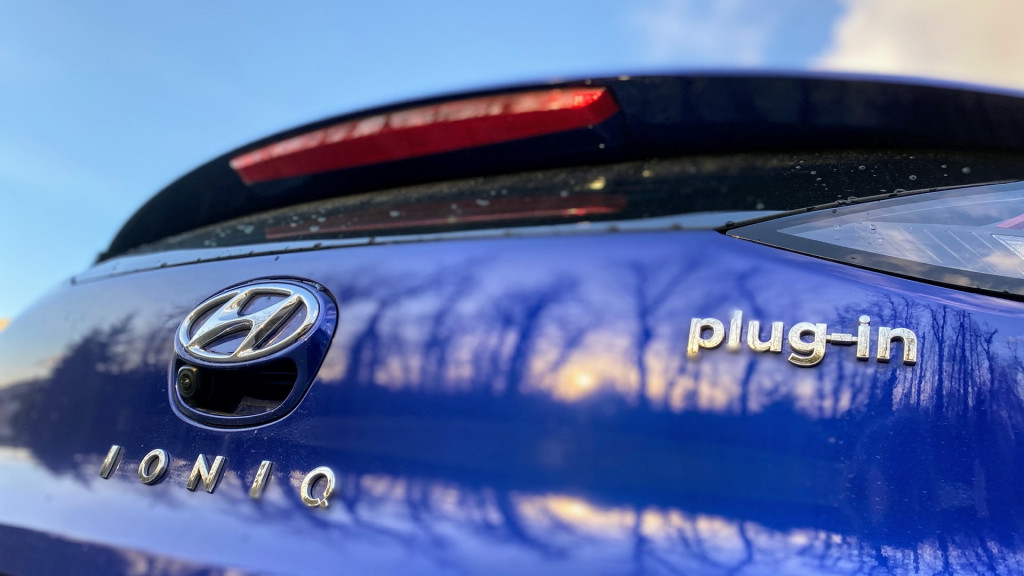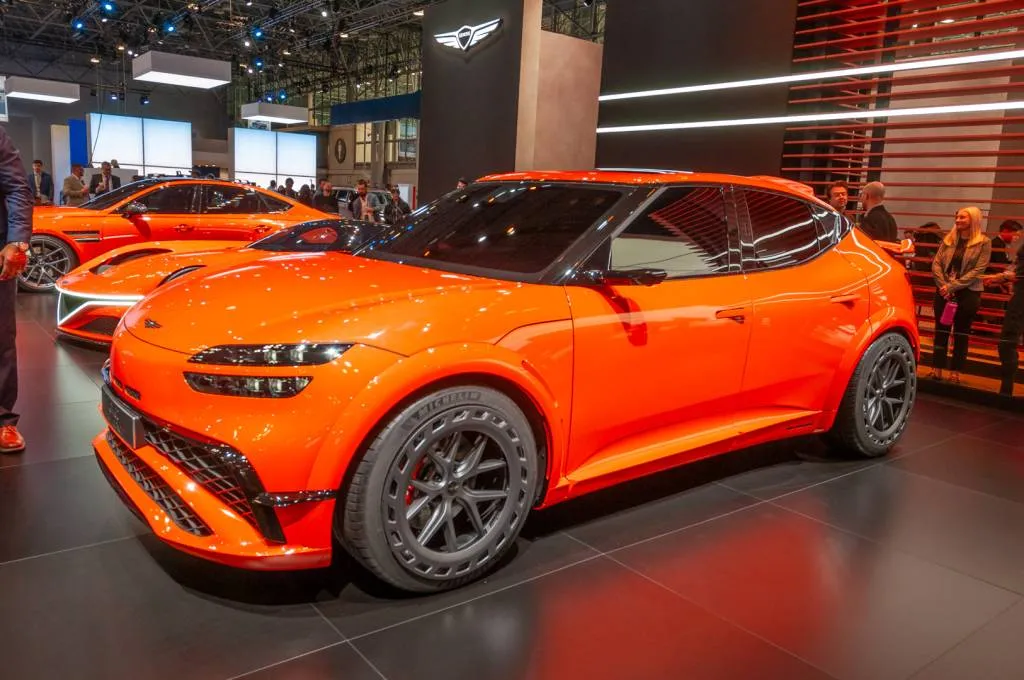- Hyundai to start production of series plug-in hybrids in U.S. in 2026
- Hyundai's upmarket Genesis brand will also receive hybrids
- Hyundai concedes EV demand is slowing but still plans 21 new EVs by 2030
Hyundai on Wednesday provided an update on its electrification plans for the remainder of the decade at an investor presentation held in Seoul, South Korea.
The automaker said it wants to grow its lineup of electric vehicles while at the same time adding more hybrids, including series plug-in hybrids, where a gas engine is used purely as a generator to charge a battery of an electric drive system.
Hyundai concedes that the increase in demand for EVs is slowing, and as a result the automaker will also lean on hybrid technology as a means to reduce emissions.
Hyundai currently focuses on smaller cars for its hybrid range but in the future large models and luxury models from Genesis will also offer hybrid powertrains. The automaker said it expects a surge in hybrid demand, particularly in North America. The automaker also said some of its future hybrids will benefit from improved brake energy regeneration and vehicle-to-grid technologies.

Hyundai Ioniq Plug-In Hybrid - January 2021
Series plug-in hybrids will be built in North America and China by the end of 2026, with sales starting the following year. In North America, the first series plug-in hybrids will be “D-class SUVs,” which in size terms corresponds to vehicles like the Hyundai Santa Fe and Genesis GV70. The SUVs will have electric all-wheel-drive powertrains with a smaller battery compared to an EV and a gas engine acting as a range extender. Hyundai mentioned a range of 900 kilometers (approximately 560 miles) for the series plug-in hybrids, though the automaker didn't state which test cycle the estimate uses.
On the EV side, Hyundai said it plans to launch 21 EVs in global markets by 2030, ranging from affordable offerings to luxury and high-performance vehicles. The automaker has set a goal to sell EVs at the rate of 2 million annually by 2030. The automaker wants to be selling around 5.5 million vehicles in total annually by the same date.
Some of the new EVs will be marketed under Hyundai's upmarket Genesis brand, starting with a production version of the GV60 Magma concept shown earlier this year. Magma is the new performance sub-brand for Genesis, designed to rival BMW M and Mercedes-Benz AMG.

Genesis GV60 Magma concept
Hyundai's N performance sub-brand will also launch more EVs beyond the current Ioniq 5 N, the automaker said. The next is likely to be an Ioniq 6 N, prototypes for which have been spotted.
Some of the new EVs will be built in the U.S. at Hyundai's plant in Georgia. Hyundai confirmed the Ioniq 5 and new Ioniq 9 three-row SUV for the plant. The Genesis Electrified GV70 is already built at Hyundai's plant in Alabama.
Hyundai said it is developing solid-state batteries, but the technology, which promises lower costs and longer range, likely won't be used by Hyundai before 2030. In its announcement on Wednesday, the automaker said it will rely on nickel-cobalt-manganese (NCM) batteries and low-cost lithium-iron-phosphate (LFP), as well as a still-in-development low-cost NCM battery.
